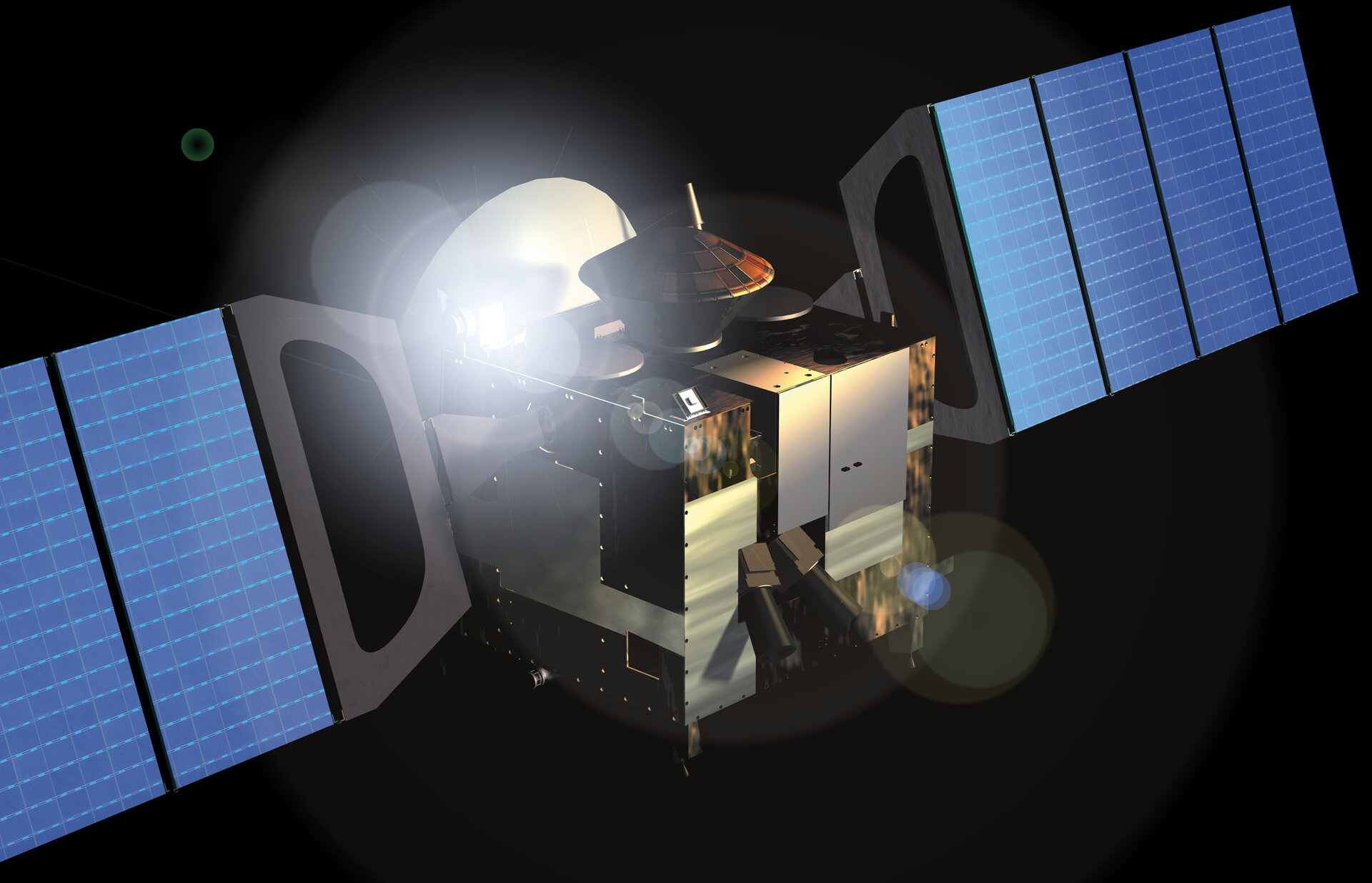Mars Express: a planetary detective
Recent space missions have revealed a wealth of knowledge about Mars, but also raised many questions. What forces, for example, created the spectacular features in the martian landscape? When did they cease? Or do some still act today? Was early Mars really warm and wet? If so, where did the water and atmosphere go? Did life evolve there? And is primitive life still thriving, perhaps associated with underground aquifers?

The Mars Express mission will help to answer these questions and many more by mapping the martian sub-surface, surface, atmosphere and ionosphere from orbit and by conducting observations and experiments on the surface.
"We are addressing a series of noble objectives," says Agustin Chicarro, Mars Express Project Scientist at ESTEC. "As well as helping to answer the big questions about water and life, our investigations will provide clues as to why the north of the planet is so smooth and the south so rugged, how the Tharsis and Elysium mounds were lifted up and whether active volcanoes exist on Mars today. We should also find out about the minerals in the rocks and the composition of the atmosphere in greater detail than ever before".
The Mars Express Orbiter will:
|
The Beagle 2 lander will:
|


